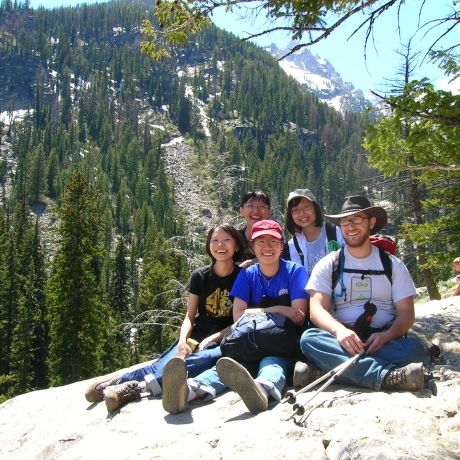Working
How To Succeed At Your Job
This may be your first official job. Even if you have past experience, you may find that working in the United States is different. The following tips can help you succeed and enjoy your time at work.
Know What’s Expected of You
Full-time employment is a big responsibility. If you have a positive outlook and willingness to be part of a team, the experience can be truly rewarding. The right attitude can make going to work something you look forward to every day, and will help you form friendships with your co-workers.
Employers notice employees who enjoy their work, especially if you interact with your supervisor and co-workers. They’ll recognize your effort and respond with respect and trust.
Every workplace is different. While most are relaxed and informal, we expect CIEE employers to always be professional. Here are some simple ways to do well at your job:
- Always be on time
- Be cooperative and pleasant to everyone
- Do your best at every task that’s given to you
- Dress appropriately. Some jobs require you to wear a uniform
Your employer also is required to treat you well. You should not tolerate unreasonable demands or inappropriate behavior. Report any incidents to CIEE immediately.
Employers have the right to request that you take a drug test. You may be tested before starting work or at any time during your employment, and a positive test means loss of your job and the end of your program. You may also be tested if you are involved in an accident.
Your First Day
When you arrive at your job, feel free to ask questions if you’re unsure of anything. Your first day includes completing paperwork and an orientation. You will meet with your supervisor or someone from Human Resources. Bring these documents with you:
- Passport and J-1 visa
- DS-2019 form
- I-94 form - Click here to obtain the I-94 form
- Proof of application for your Social Security number. Your employer may not know that you can start work and get paid before your Social Security number is issued. If you need advice, call CIEE at 1-888-268-6245.
FAQs
There are a few more forms to fill out. Your employer will help you with the following paperwork:
This form confirms your employment eligibility. The form asks for your Social Security number. Your employer can fill that in later, once you get your number. Make sure to give your employer the number once you have it.
Your employer automatically sets aside (deducts) money for federal taxes from your paycheck. This form tells the employer how much to deduct, so that you do not under or overpay.
Follow these instructions to fill out the federal form W-4
Important: As non-resident alien, the standard instructions on the form do not apply to you.
Personal Allowances worksheet: Ignore this section.
Box 1: Enter your personal information including your U.S. address.
Box 2: Enter your Social Security number (SSN). If you have not been issued a Social Security number but have applied for one, write, “Applied For.” Give your employer your SSN once you receive it.
Box 3: Check or fill in withholding as “single,” regardless of actual marital status.
Box 4: Leave blank.
Box 5: Enter “1.” There are no exceptions to this.
Box 6: Write “NR” to indicate Non-Resident Alien status.
Box 7: Leave blank. Non-Resident Aliens cannot claim “Exempt.”
Boxes 8 – 10: Leave blank.
Sign and date the form.
Most U.S. states require tax to be deducted from your paycheck for state taxes. The state tax form looks different from the federal form, but asks for the same information.

Dealing with Issues in the Workplace
CIEE works with America’s best seasonal employers. However, sometimes problems may come up at work. Often these are the result of simple misunderstandings. An employer may not notice your good work, or treat you in a way that you do not feel is fair. Try to handle the situation by talking with your supervisor calmly, professionally, and constructively. If you feel you need additional support, CIEE is here to help you.
Some issues are very important and you should call CIEE immediately at 1-888-268-6245 if any of these happen:
Sexual Harassment & Racial Discrimination
An important part of cultural exchange is learning about and respecting other people’s beliefs, values and boundaries even when they are different from our own. You should also expect to be treated with respect. Sexual harassment and racial discrimination are very serious matters in the United States and there are laws here to protect workers. To learn more about these important issues, please click here.
Layoffs & Firings
You could be laid off for any number of reasons. For example, if business is slow, your employer may not need as many workers. Getting fired usually means the company is unhappy with your performance. Talk to your employer if you have any questions or contact CIEE to talk about any issues before they become serious problems.

Leaving Your Job
If you are having issues at work, you should attempt to resolve the issues with your employer. If you decide that you still want to leave your job, you must contact CIEE first. If you quit or change your job without first receiving approval from CIEE, you risk withdrawal from the CIEE Work & Travel USA program. Additionally, any new job must be approved by CIEE before you do anything.
Before you decide to leave, know that it can be difficult to find a new job. You have 30 days to find a new employer and report your job to CIEE, or your program will end and you will have to return home. Make sure to keep CIEE informed of your search and any change of address. Read more about getting a new job.
Handling your departure from your job in the right way ensures that you receive your final paycheck promptly and makes it more likely that your employer will give you a recommendation letter. It is customary in the United States to give a written two-week notice to your current employer to help them plan for your replacement.
Employers, especially those involved with summer or winter tourism, rely on you to work until the agreed-upon end date. Leaving your job early causes problems for your employer and may jeopardize opportunities for future Work & Travel USA students. You should never simply quit your job. If problems persist after you have spoken with your supervisor, or you need advice on how to speak with your employer, contact CIEE.